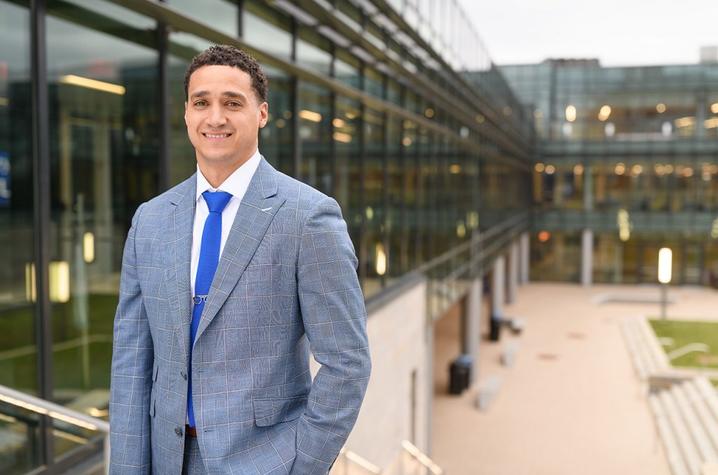Op-ed: A Pandemic Makes the Hard Job of Protecting Children Even Harder

LEXINGTON, Ky. (April 13, 2020) — The following op-ed about child protective services (CPS) was published in the Lexington Herald-Leader April 2, 2020. Jay Miller is the dean of the College of Social Work at the University of Kentucky.
The work of CPS workers is unheralded, misunderstood and underappreciated. They are tasked with doing an impossible job. They respond to allegations that most of us couldn’t fathom. Neglect. Physical abuse. Sexual abuse. And, yes — child fatalities. When societal efforts to ensure the well-being of children fall apart, we (literally) call CPS workers to pick up the pieces.
To understand the daunting tasks of child protection, one needs to think about the process.
Someone calls a central hotline with a concern. If it meets investigatory criteria, a CPS worker is dispatched. In most instances, there is very little, if any, information about who or what is in the home. The very fact that CPS has been called to the home, in most cases, indicates the worker may be walking into a potentially dangerous situation.
Once at the home, workers start prodding and asking questions. Tough questions. If the responses are not detailed enough, workers ask more questions. More prodding. People may become agitated with workers; workers may become agitated themselves. Workers stop, rewind and try again.
If warranted, a child may be removed from their home. It is important to note that other service systems, namely the courts, are involved in making decisions about removals. Contrary to any sentiment expressing otherwise, there is NO “good” way to remove a child. Workers provide services to children and families with the hope, in most cases, that kids and parents can be reunified. Sometimes it happens, sometimes it doesn’t. This is a true, be it unfortunate, fact of child protection.
As with most things, context is important. CPS workers provide services in a contemporary context of dizzying misconceptions. To answer a few: No, CPS workers don’t get paid more if they remove kids. Child removals are actually a lot more work and are a last resort. No, CPS workers cannot just go into a home and remove a child. Only police officers can do that. CPS workers must seek permission from a judge prior to removals. No, CPS workers are not “happy” to remove kids. I have been on both sides — I was removed from my home and put in out of home care AND I was a CPS worker for several years. Removing a child is the most difficult, heart-wrenching action a CPS worker will take.
I could go on — but you get the point.
In addition to misconceptions, there are other challenges. Community needs related to child protection far outweigh available resources. Poor public perceptions of their work make protecting children even more difficult. CPS workers experience inordinately high rates of workplace stress, burnout, vicarious trauma and post-traumatic stress, among other inimical conditions. Even in the midst of global pandemics, CPS workers put themselves at risk to visit homes, see families and provide services. Indeed, as recent research has suggested, there are few social service jobs harder than child protection.
To be clear, there is always room for improved service delivery. When an entity, such as child protective services, is tasked with allaying and/or assuaging every instance of child maltreatment, indubitably, things will go wrong. Without question, we should all work to ensure that children and families receive the best, most innovative services available. Period. And, we should also ensure that we support those tasked with delivering that service.
So, I issue a clarion call to all Kentuckians: recognize that child abuse prevention is not a someone issue, it is an everyone issue. As such, everyone should be involved in the solution. Part of that solution is to honor, appreciate and support child protective service workers — not just in April, but every month.
As the state’s flagship, land-grant institution, the University of Kentucky exists to advance the Commonwealth. We do that by preparing the next generation of leaders — placing students at the heart of everything we do — and transforming the lives of Kentuckians through education, research and creative work, service and health care. We pride ourselves on being a catalyst for breakthroughs and a force for healing, a place where ingenuity unfolds. It's all made possible by our people — visionaries, disruptors and pioneers — who make up 200 academic programs, a $476.5 million research and development enterprise and a world-class medical center, all on one campus.




